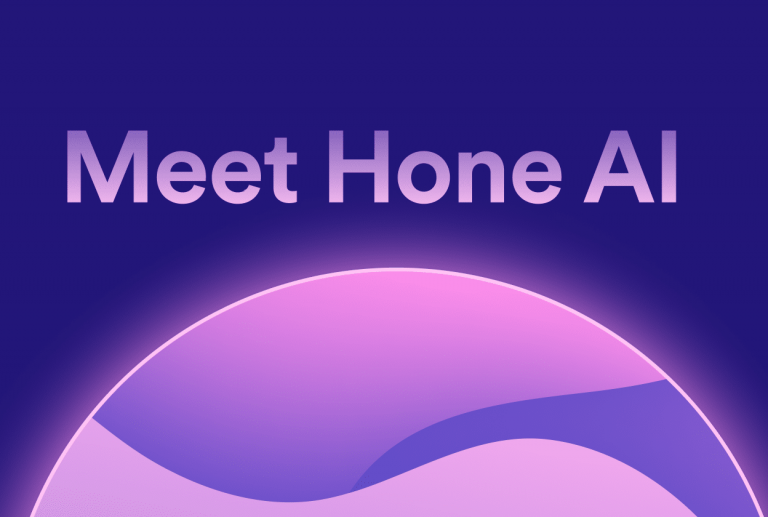What is DEIB?
The definition of DEIB stands for Diversity, Equity, Inclusion, and Belonging. These are four interrelated concepts that are increasingly being addressed in workplaces to promote a more diverse, equitable, and inclusive work environment. Here’s a brief overview of what each of these terms means:
- Diversity: Refers to the range of differences that exist among people in terms of characteristics such as race, ethnicity, gender, sexual orientation, ability, age, and more. It’s about creating a workplace that reflects the diversity of the communities in which we live and work.
- Equity: Refers to ensuring that everyone has the opportunity to succeed, regardless of their background or identity. It’s about identifying and removing systemic barriers that may prevent certain groups of people from fully participating in the workplace.
- Inclusion: Refers to creating a workplace culture where everyone feels valued, respected, and supported, regardless of their background or identity. It’s about fostering a sense of belonging for all employees and promoting a culture of respect and appreciation for diversity.
- Belonging: Refers to the feeling of being accepted and valued for who you are. It’s about creating a sense of community within the workplace, where everyone feels that they are an important part of the team and can bring their whole selves to work.
Together, these four concepts provide a framework for creating a workplace that is diverse, equitable, and inclusive, where all employees feel valued and supported, and have the opportunity to succeed. DEIB goals are increasingly important for Human Resource (HR) teams. As part of learning and development (L&D), DEIB concepts bring cultural competency up to societal standards. Furthermore, DEIB strategies enhance organizations’ abilities to compete in global markets. Workplace DEIB initiatives increase employees’ self-awareness and empathy. For instance, individuals may identify unconscious biases. DEIB coaching and programs help management and employees navigate differences within an organization.
In addition, training promotes a safer and more welcoming environment. Implementing, monitoring, and upkeep a DEIB-informed workplace improves relations and teamwork. Managers can use DEIB as an influential resource to enhance organizational effectiveness. Their recognition and encouragement of diversity increase employees’ sense of belonging. These acts also improve their unique contributions and commitment to the company.
What Does DEIB Stand for?
DEIB is an abbreviation for Diversity, Equity, Inclusion, and Belonging.
Diversity in the Workplace
Diversity is the opposite of homogeneity or sameness. Workplace diversity means having employees from different backgrounds, including the following:
- Age
- Gender identity
- National origin
- Physical ability
- Race/ethnicity
- Religion
- Sexual orientation
- Veteran status
The federal government has antidiscrimination laws for the above characteristics. Businesses benefit from having a diverse workforce. Diversity translates to better decision-making and improved problem-solving. Additionally, diverse teams produce greater creativity and innovation. They also generate more successful marketing to different types of customers.
Equity in the Workplace
Equity is the quality of being fair and impartial. Equity in the workplace means fair treatment, access, and advancement for each employee. The goal is to ensure that all employees have opportunities to grow and progress. However, equity differs from equality. Equality means treating everyone the same. Equity recognizes that fairness does not always translate to identical treatment.
Workplace equity means creating space for underrepresented voices. Companies must tackle unconscious biases. For instance, they must provide inclusive, competent care through their health plan.
Inclusion in the Workplace
Inclusion is the action or principle of being included or including someone in a group. Workplace inclusion involves creating an environment that recognizes, appreciates, and effectively utilizes every employee. An inclusive company culture is welcoming. Inclusive employers focus on ensuring everybody is heard and can voice their opinions. It is ultimately a multifaceted practice involving a variety of approaches.
Employees who feel included are more motivated and productive. Additionally, they are 3.5 times more likely to contribute to their maximum potential. Yet, a Harvard Business Review study found that 40% of surveyed employees felt isolated in their workplace.
Belonging in the Workplace
Belonging is the affinity for a place or group and is a fundamental need. In the workplace, it is positive relationships between individuals and their employers, employees, and coworkers. Workplace belonging is also a sense of acceptance.
When employees feel workplace belonging, they are:
- 3x more likely to look forward to coming to work.
- 3x more likely to say their workplace is fun.
- 5x more likely to want to stay at the company for a long time.
- 9x more likely to believe people are treated fairly.
Belonging involves intentional goal setting and monitoring. For instance, managers often use extra strategies to keep remote employees engaged and part of the team.
DEIB vs. DEI
Companies have had diversity, equity, and inclusion (DEI) programs, strategies, and values for years. Belonging is the newest addition and adds the final letter to DEIB. Some organizations write the acronym DEI=B since they believe diversity, equity, and inclusion result in belonging.
DEIB in the Workplace
Organizations cannot separate the issues that exist in society from the workplace. Therefore, DEIB training is integral to HR, L&D, and prevention.
The following are three organization types that focus on the development of cultural diversity:
- In monolithic organizations, the presence of persons from different cultures is minimal. They may have minority members within the workforce but not in positions of leadership and power.
- Plural organizations have a more heterogeneous workforce and try to be more inclusive. They seek to empower and encourage promotion and leadership opportunities for those in marginalized groups.
- Multicultural organizations have many different cultural groups and different genders. They value this diversity and encourage healthy conflict to avoid groupthink.
Companies can foster innovation and promote psychological safety with a diverse workforce. To start, they need to address unconscious bias within the employee population. When adopting a more inclusive environment, organizations can face assimilation challenges for any member outside the dominant group.
What are DEIB Training Topics?
DEIB training facilitates positive intergroup interaction, reduces prejudice and discrimination, and teaches employees of different backgrounds how to work together effectively. Coaches and facilitators create programs to meet specific objectives.
DEIB training develops a long-term strategy for diversity and preventing workplace harassment. Generally, topics foster understanding and harmony between workers. The following are some examples:
- Racism in the Modern Workplace
- Allyship in the Workplace
- Address Microaggressions on Your Team
- Create a Culture of Belonging
- Embrace Allyship in Your Organization
- Embrace Diversity Through Inclusion
- Manage Bias in the Workplace
- Building Workplace Belonging
- Hiring Diversity in the Workplace











